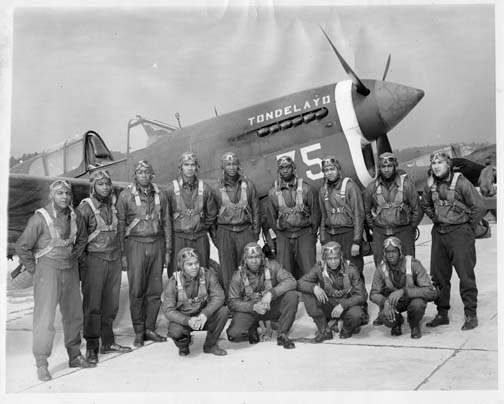
Pilots of the Tuskegee Airmen pose in front of a P51 Mustang, the primary role fighter used by the U.S. Army Air Corps by 1944. (Photo: airforcemag.com)
On July 26, 1948, President Harry S. Truman signed Executive Order 9981, officially ending segregation in the United States armed forces.
Before the order, Americans of color could only serve in segregated units that were often held in disregard by the white officers that typically commanded them. Units in World War II, like the all-black Tuskegee Airmen and all-Japanese 442nd Regimental Combat Team, however, proved that heroic and impactful actions were not limited to white servicemembers.
Young men and women of color were responsible for a multitude of achievements during the war that decisively changed the narrative that claimed minorities could not serve as effectively as their white counterparts. Initially, only white Americans could be drafted for service in World War II but a need for more manpower encouraged the War Department to expand its conscription policy in 1943. Naturally, millions more Americans became eligible for service.
One such American, Theodore Lumpkin Jr. from Los Angeles — who recently passed away at the age of 100 — was drafted into the United States Army and assigned to the 100th Fighter Squadron as an intelligence officer where he briefed pilots on near-daily escort missions for allied bombers in Italy.
The 100th Fighter Squadron, of course, was one of several units that would collectively serve under the banner of the 332nd Fighter Group — better known as the Tuskegee Airmen.
Despite their flying obsolete fighter craft until 1944 — and even garnering criticism from the War Department for poor performance against Nazi Germany’s superior craft in their initial sorties — the Tuskegee Airmen would eventually become one of World War II’s most well-respected aerial units. By the end of the war, the group lost only 25 allied bombers, compared to the 15th Air Force’s average of 45 lost bombers per escort unit.













